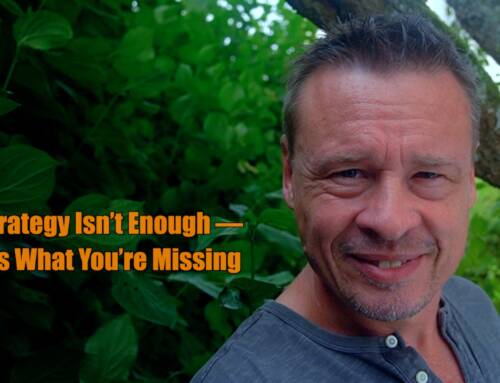Andrew Huberman’s insights into the physiology of focus and reward systems can provide valuable perspectives when considering how project staff in international development cooperation feel about their videos.
In many cases, organizations produce videos to showcase their work and expect these videos to generate engagement and impact immediately. However, as Huberman’s discussion suggests, there is a neurobiological process involved in achieving focus and feeling rewarded that can shed light on why such expectations may be unrealistic.
For some readers my comparison might seem a bit far-fetched and it very well may be but why don’t you give it a go? Listening to what Huberman has to say is “rewarding” in itself, an inspiration, you’ll see.
Comparing it to what you expect from a quick one-off project video and the “external” metrics you apply to try and gauge its impact can be an eye-opener — if you’re willing to open them and go a bit out of your usual ways.
The Early Stages of Hard Work
Huberman highlights that the early stages of focused work are often marked by agitation, stress and confusion. Similarly, international development projects typically go through challenging phases when creating videos about their work, which may not be nearly as appealing to the target group as expected simply because it takes more than just creating one video. Just like with basically anything you need some practice — even though you have a professional video team on board with you.
Norepinephrine and Adrenaline
Huberman mentions that norepinephrine and adrenaline systems play a role in getting started on a task. In the context of development projects, the initial stages may involve overcoming obstacles, securing funding, and conducting groundwork, which can be stressful but are essential to long-term success. This also applies to the process around creating videos and should be accepted as such.
Dopamine and Rewards
Dopamine, Huberman notes, is released when one achieves milestones or feels they are on the right path. In international development, organizations often create videos to showcase their progress or achievements. However, expecting immediate impact from these videos may not align with the natural release of dopamine, which happens over time as projects advance and therefore it would be better to create a video series.
Internal vs. External Rewards
Huberman emphasizes the importance of self-rewarding and intrinsic motivation and not solely relying on external rewards. Similarly, development organizations should consider that the true impact of their videos often lies in how it actually reached the prime target group rather than on anything that can be measured on metrics such as view counts and likes.
Recognizing the Agitation Phase
Huberman suggests that recognizing the initial stress and agitation as part of a process is essential. In the context of development videos, it’s important for organizations to set realistic expectations about when and how impact can occur and not become discouraged during the early stages. You don’t go to the gym for one long workout with a professional trainer and expect a huge muscle gain either.
The Power of Focus
Huberman’s discussion underscores the value of focus and how it leads to greater rewards. In international development reporting, staying focused on long-term goals and persevering through challenges and keep on reporting on them can ultimately lead to more meaningful positive outcomes.
He mentions the concept of a growth mindset, which involves finding joy in the effort process. In development projects, cultivating a growth mindset can help teams stay motivated during challenging phases and understand that progress may not always be immediately visible. Actually, using more continous small step video units could help the motivation of staff as much as on the reporting side.
Self-Rewarding Milestones
Finally, Huberman suggests self-rewarding small milestones. In the context of development, organizations can celebrate their achievements internally and recognize that the impact of their work may take time to manifest fully. Video can be a perfect tool for this nowadays.
Andrew Huberman’s insights into the physiological aspects of focus and reward systems can be applied to international development cooperation projects by encouraging organizations to set realistic expectations about the impact of their videos and how it can be achieved.
Recognizing that the early stages may involve stress and agitation, but that sustained effort and focus are key to achieving meaningful results, can help development organizations approach their video work with a more informed perspective and patience.





Leave A Comment